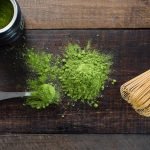Older people suffering from depression age faster, study finds
Dementia is a syndrome that refers to a decline in cognitive function that interferes with daily activities.
It is a progressive condition that affects memory,...
Alcohol overdrinking and anxiety connect to each other, study finds
Anxiety sensitivity is a condition where people feel very scared about getting anxious or worried.
When people with anxiety sensitivity drink alcohol, they may drink...
Why men and women have different depression symptoms
Depression is a mental health disorder characterized by persistent feelings of sadness, hopelessness, and a loss of interest or pleasure in activities that an...
Long COVID: what we know about how the condition affects mental health
Many people have persistent symptoms after recovering from COVID, a condition termed “long COVID”.
The UK’s Office for National Statistics estimates 1.8 million people in...
Antidepressant withdrawal should be taken seriously – we’re investigating ways to help people come...
Misinformation about antidepressants is rife and is probably fuelling their rise in use.
Why Matcha tea powder may fight depression
Depression is a common mental disorder that affects many people around the world.
It's caused by a lack of dopamine in the brain, which is...
Depression too often gets deemed ‘hard to treat’ when medication falls short
A plumber who shows up to fix a leaking toilet with a single tool is not likely to succeed. The same is true if...
This stuff in blood is linked to depression, study finds
Depression is a mental health condition that affects how a person feels, thinks, and acts.
It causes feelings of sadness, hopelessness, and a loss of...
A new diet for people with bipolar disorder
Scientists from Penn State found that a specific diet could help people with bipolar disorder manage their mood swings better.
Bipolar disorder is a mental...
Mediterranean diet plus fish oil can benefit people with depression
The University of South Australia scientists have discovered that incorporating fish oil into a Mediterranean diet can improve mental health in people suffering from...










